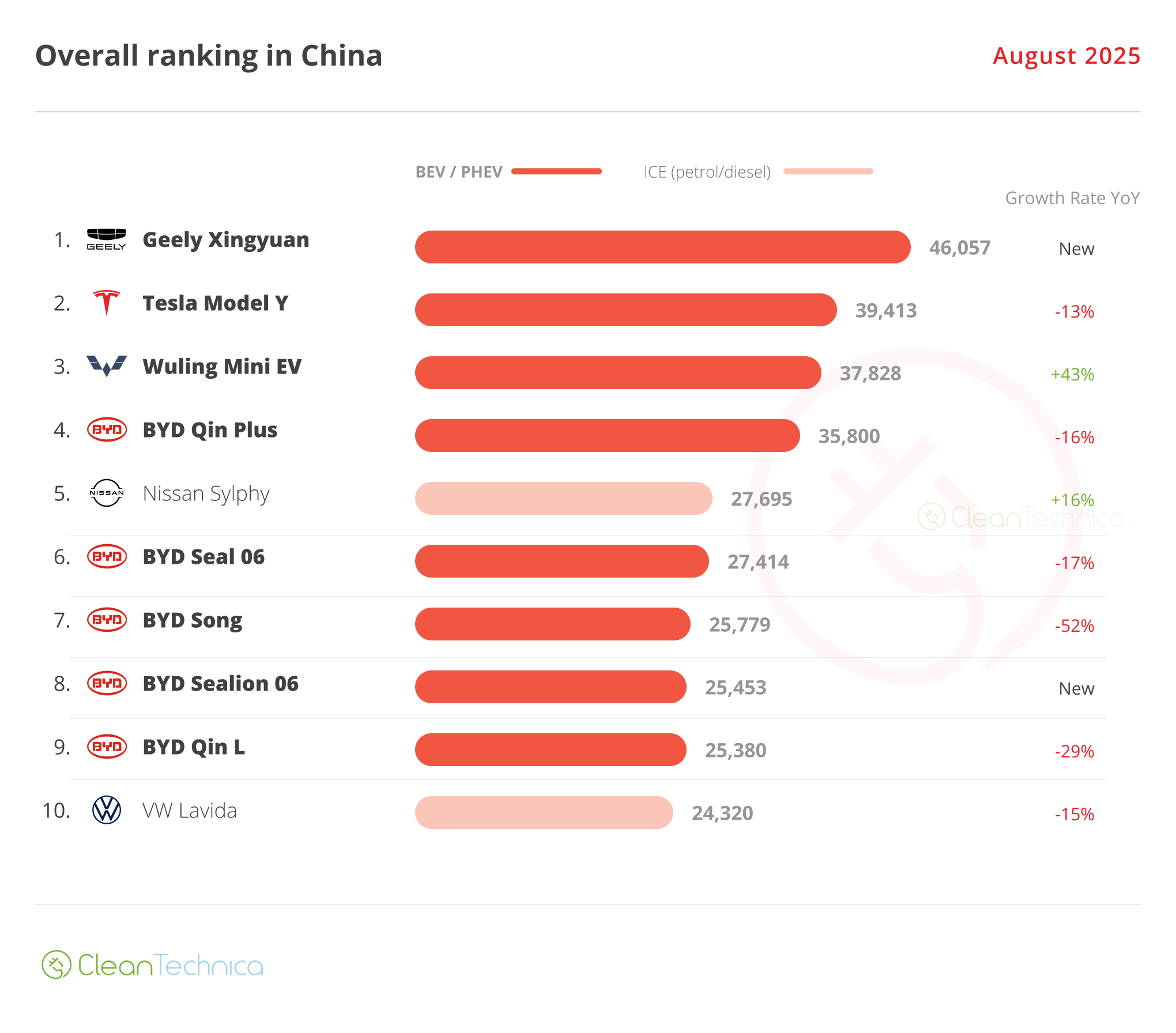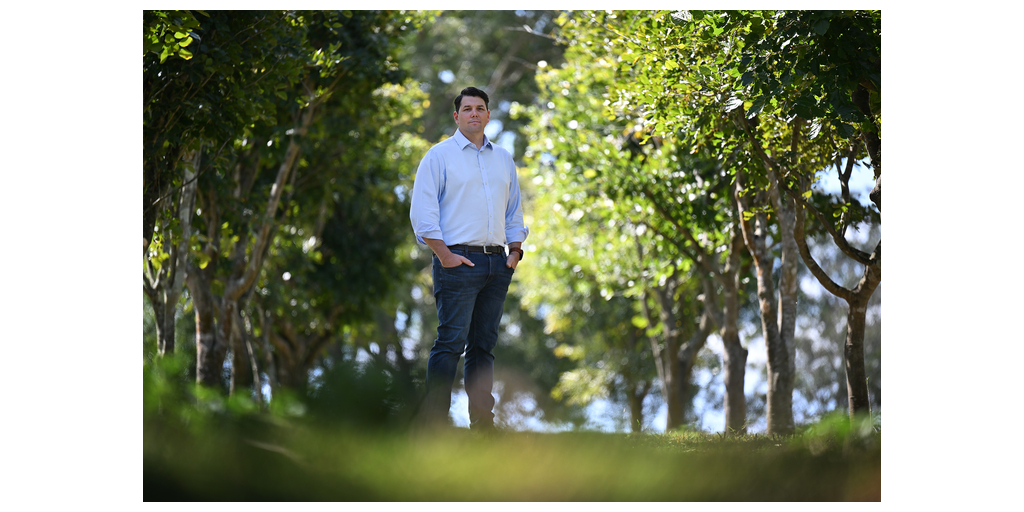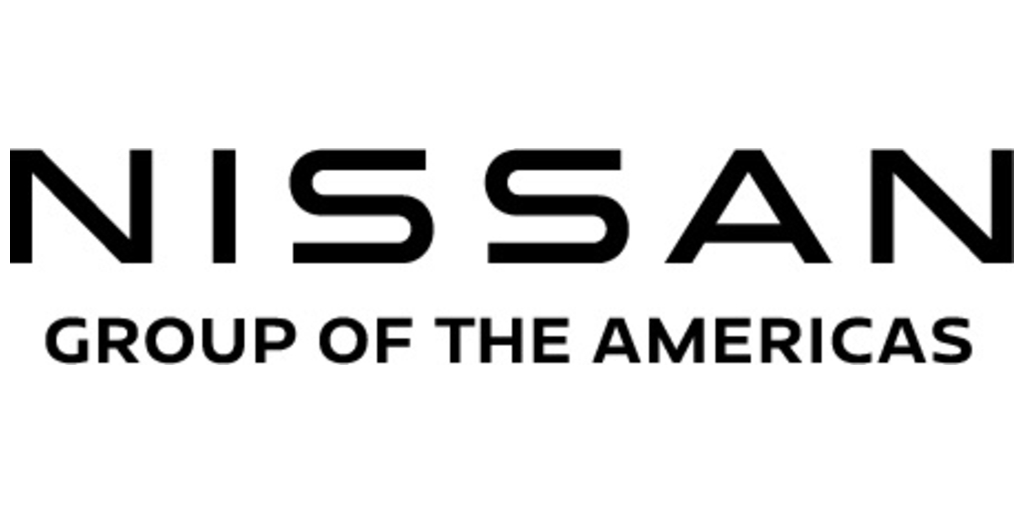Support CleanTechnica’s work through a Substack subscription or on Stripe.
Last Updated on: 18th August 2025, 10:56 am
In the first 6 months of this year, 788 PHEVs were sold in South Africa. In the whole of 2024, 737 PHEVs were sold in 2024, up 100% from 368 units sold in 2023. However, PHEVs still only made up 0.14% of total vehicle sales in South Africa in 2024. Looking at those numbers, we can see that more PHEVs were sold in H1 2025 in South Africa than in the whole of 2024! The introduction of new models from Chery, Omoda, Jaecoo, and Haval has played a huge part in this. Chery’s PHEVs made up 27% of all PHEVs sold in South Africa in H1 of 2025. BMW still leads the way with 48% of the PHEV market during that period. There is a growing number of plug-in hybrids with electric ranges above 100 km that are now being offered in South Africa by these Chinese manufacturers and these seem to be winning over some consumers.
Amongst the Chinese brands, Chery appears to be leading this transition, offering plug-in hybrids at reasonable prices, and the South African market seems to be responding well to this. These offer consumers more value than the older generation PHEVs from some other markets that had electric ranges of less than 40 km in real driving conditions. A lot of people commute between Pretoria, Centurion, Midrand, and Johannesburg, and PHEVs with a real range of over 90km will offer great value. A lot of people now also have solar at home and charging these PHEVs with solar makes the value proposition financially stronger. Thanks to Chery & Co, there are more PHEV options with decent all electric range available now in South Africa, and this could be one of the main reasons driving the growth in sales, whereas a few years ago, the few PHEV models available mostly had real electric ranges of around 50km and below.
Unfortunately, sales of BEVs look to be stagnating and not seeing the same explosive growth we are seeing in South Africa’s PHEV market. In the first six months of 2025, just 570 BEVs were sold in South Africa. That’s about half of the total number of BEVs sold in South Africa in the whole of 2024. 515,712 vehicles were sold in South Africa in 2024 and only 1,257 BEVs were sold in 2024. That’s still very low! With only 3,212 BEVs sold since 2018, it’s clear to see that sales of BEVs have been slow in South Africa. Let’s take a look at which BEVs topped South Africa’s BEV charts in H1 of 2025.
The Volvo EX30 which topped the BEV charts in 2024 maintained its lead, selling the most units in the first 6 months of 2025 as well. 70 units of the Volvo EX30 were sold during the first 6 months of 2025 in South Africa, followed by 54 units of the Mercedes-Benz EQE. In third place was the Mercedes-Benz EQB, with 50 units, followed by the MINI Aceman with 45 units. The BMW iX1 rounded up the top 5 with 35 units. Interestingly, Mercedes-Benz had two models in the top 5, both with podium finishes, which is commendable given the fact that the top 5 positions have been traditionally dominated by the BMW group, and most recently by the BMW Group and Volvo Cars since the introduction of the XC40, C40 and the EX30.

Rebirth of the PHEV in South Africa? If we take a look at what happened in China in 2024, we could see some similarities. For large players such as BYD and several others, PHEVs outsold BEVs in 2024. Looking at BYD specifically, for 2024, BYD’s PHEVs took 58% of total sales, a big contrast to 2023 when BEVs had a higher share at 52.3%. So, what caused the sharp increase in PHEV sales in 2024? For starters, BYD launched several new PHEV models in 2024 as well as updating its lineup of PHEVs. BYD ran a campaign in China framed as “PHEVs are cheaper than ICE,” highlighting that its upgraded PHEVs are cheaper to buy compared to equivalent full ICE vehicles, from both an upfront purchase perspective as well as an operating or total cost of ownership (TCO) perspective. This appeared to resonate with buyers in 2024. Other players introduced a range of EREVs which were very successful. BEV sales have overtaken PHEV sales again in China in 2025 so far. Will we see BEVs also making a comeback to the top position in South Africa’s plug in market?
Now with a number of Chinese players such as the Chery Group, SAIC’s MG, and other expanding operations in South Africa, it’s no surprise that PHEVs are on the up. BYD also introduced a number of PHEV models in South Africa, such as the Sealion 06 and the BYD Shark pickup. This coupled with high import duties and taxes levied on BEVs in South Africa, sales of more affordable PHEV models from an upfront purchase perspective, could further boost PHEVs sales in South Africa, increasing the gap by year end and the near future.
BEVs are really better products and one hopes the South African government will reduce import duties and taxes levied on BEVs to boost adoption ASAP. High import duties and taxes are applicable to electric vehicles in South Africa. Petrol and diesel vehicles imported from the EU into South Africa have a customs duty of 18%, while for electric vehicles it is 25%. There are also the Ad Valorem Customs Excise Duties and VAT. The South African government should at least reduce the import duties to match the 18% for ICE vehicles. In fact, they could learn from several governments on the African continent that have reduced and even removed import duties for BEVs completely to encourage adoption. Countries that have reduced or removed import duties on BEVs include Ethiopia, Rwanda, Mauritius, Zambia, and Zimbabwe, amongst several others.
One positive thing is that in 2025, we are going to see more affordable BEVs entering the South African market. One of the highly anticipated ones is the BYD Seagull/Dolphin Mini/ATTO 1 that is being launched in South Africa this September. Rumored to be priced around R350,000 (about $19,900), which is the price range of some popular ICE hatchbacks in South Africa, this has the potential to really supercharge BEV sales in South Africa. The BYD Seagull will be known as the Dolphin Surf in South Africa, just like in the UK. If the South African government finally moves to remove import duties on BEVs in South Africa, the Dolphin Surf price in this market will be even more attractive, helping to accelerate adoption.
Sign up for CleanTechnica’s Weekly Substack for Zach and Scott’s in-depth analyses and high level summaries, sign up for our daily newsletter, and follow us on Google News!

Have a tip for CleanTechnica? Want to advertise? Want to suggest a guest for our CleanTech Talk podcast? Contact us here.
Sign up for our daily newsletter for 15 new cleantech stories a day. Or sign up for our weekly one on top stories of the week if daily is too frequent.
CleanTechnica uses affiliate links. See our policy here.
CleanTechnica’s Comment Policy




